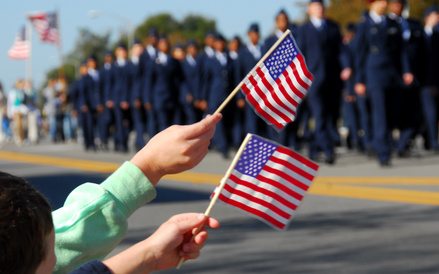By Carl Prine
The Pittsburgh Tribune-Review
Brett Lawler spent eight years in the Army — including two combat deployments to Iraq — as a field artilleryman and intelligence officer before settling into farm life in Kittanning.
Seven years ago, Army Capt. Matthew Armstrong patrolled the streets of Baghdad’s Ameriyah neighborhood during the bloodiest fighting in Iraq’s civil war.
Two years ago, Iowa Army National Guard Sgt. 1st Class Karl Stodden recovered in a special medical unit from injuries from hard fighting in Afghanistan and Iraq.
When their tours ended, the former GIs entered the worst job market for young adults in eight decades. Despite the hiring or training of 290,000 veterans and their spouses under the federal Joining Forces campaign, nearly one in 10 post-9/11 vets was jobless this year — twice the rate of civilians in their age group, according to the White House Council of Economic Advisors.
Lawler, Armstrong and Stodden didn’t wait for someone to hire them. They became “vetrepreneurs,” ex-soldiers who opt to form businesses or invent products and services.
“We got torn pretty badly on that second deployment. It was bad leadership, and when I started looking at getting out and the corporate world, I saw a lot of the same stuff that reminded me why I left the Army. So I looked at farming,” Lawler, 37, said.
In 2010, he and his wife, Kristie, 35, founded Serenity Valley Farm, an organic vegetable, fruit and cattle operation. Their farm’s motto: Food security is national security.
“Deeds, not words. We really believe that we should become the change we want to see,” Lawler said.
Last December, the Lawlers moved their operation to South Dayton, N.Y., to be closer to her family.
Veterans own one out of 10 agricultural firms, according to the Small Business Administration. Regardless of the economic sector, a veteran is 45 percent more likely to be an entrepreneur than other American adults: 2.4 million vets own businesses that employ 5.8 million workers.
SBA executive Don Nemchick, a Navy veteran and the veterans’ project manager at Riverside Center for Innovation in the North Side, said former military men and women are drawn naturally to “packing their own chute” and jumping into entrepreneurship. Buoyed by grants from the Heinz Foundation, Riverside has helped “at least 200 veterans” since 2005, Nemchick said.
“After World War II, guys went right back into the mills where they worked before they left for war,” Nemchick said. “Well, today those mills are gone. But today’s veterans are technologically savvy. They use and understand the Internet. They want to be entrepreneurs, and they have an ability to adapt and overcome challenges that they learned in the military. They work well in teams and — this is important — they not only know how to give orders but how to take them.”
Texas native Armstrong, 32, has a full-time gig as a Pentagon contractor working on high-tech programs in Monterey, Calif. Combining his computer programming skills with memories of his hard days in Baghdad, he has spent $25,000 of his savings to create an online game called COIN Impact, a play on the military nickname for counterinsurgency operations.
It’s similar to the role-playing quests popular on Facebook and other social media sites but with a twist: 20 percent of gross revenue goes to charities benefitting war veterans.
“I think that’s a hallmark of our generation,” said Armstrong. “Sure, we want our companies to be profitable, but we also want to give back to society. Service doesn’t end just because you take off the uniform.”
Instead of turning to the government or a bank for capital, Armstrong is raising $15,000 through the online fundraiser Kickstarter. That sum will hire two part-time programmers to finish the game’s rollout over an eight-week span. Instead of getting dividends, investors get COIN Impact T-shirts and special electronic tokens they can redeem to perk up their gaming experiences.
“This is a game that will appeal not only to veterans but also people who like playing online games,” said Armstrong. “The fact that much of the proceeds goes to charity just adds to the experience.”
Some of those dollars might eventually help sick, wounded or injured troops worn by a dozen years at war. Nearly a third of combat-tested veterans are disabled, according to the Bureau of Labor Statistics, and that makes landing a job difficult.
A long recovery from injuries sustained in Afghanistan in 2011 didn’t stop infantry squad leader Stodden, 34, of Le Mars, Iowa. He exited an Army Warrior Transition Unit in August, having spent much of the previous decade training for war or fighting.
Western Iowa Technical Community College was scouting for wounded servicemen willing to swap uniforms for overalls by becoming master craftsmen and business leaders in their hometowns. Stodden was a married soldier with a baby on the way. The school provided free or discounted costs for Stodden’s training — courses that made him a skilled machinist and welder and advised on starting and staffing a company that hires vets.
“As a veteran, trying to translate your job skills from military to civilian is the hardest part,” said Stodden. “But they helped me here. I’m really excited now about going out and getting started. It’s just me and a few other guys at first, but as I grow I’m going to give back by hiring more of us.”














































































































































































































































































































































































